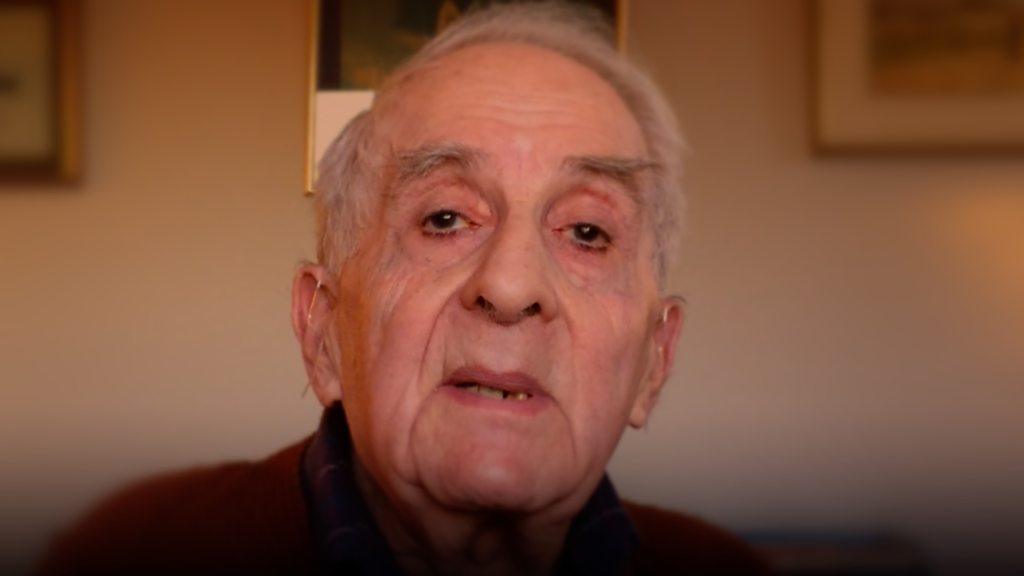Holocaust and Auschwitz survivor Frank Bright dies in Suffolk, aged 94
- Published

Frank Bright with his father Hermann in Berlin; as a boy; on his 1945 visa application and at his home in Suffolk
One of the last known Jewish Holocaust survivors in the UK has died aged 94.
Frank Bright MBE was imprisoned at the Theresienstadt ghetto in the former Czechoslovakia and his parents were believed to have been murdered at Auschwitz in Nazi-occupied Poland during World War Two.
Mr Bright, who regularly gave talks in schools, died at Ipswich Hospital after a short illness.
"I loved him very much," said his daughter Miriam Bright.
"We shared a sense of humour and I will obviously miss him very much."
Frank Bright settled near Ipswich 36 years ago
He was born Frank Brichta in Berlin in 1928 and the family fled to Prague in 1938, which was soon annexed by Nazi Germany.
Mr Bright said his father was transported from Theresienstadt to Auschwitz in 1944, never to be seen again, before he and his mother were taken there a fortnight later.
He was declared fit to work at the death camp and, after five days, was sent to work as a slave labourer at a propeller factory.
After liberation in May 1945, and after care from the Red Cross in Prague, he made his way to London to live with distant relatives.

Frank Bright (circled) at a Jewish school in Prague during the occupation by Nazi Germany, before he was transferred with his parents to Theresienstadt
He took evening classes to train as a civil engineer, worked in Canada, and returned to the UK to work with local authorities, including Suffolk County Council.
Mr Bright had two children with wife Cynthia and the pair moved to Martlesham Heath, near Ipswich, 36 years ago.
Cynthia died in November 2021 just weeks before her husband was named in Queen Elizabeth II's final New Year's Honours List, in recognition of his work with school children.
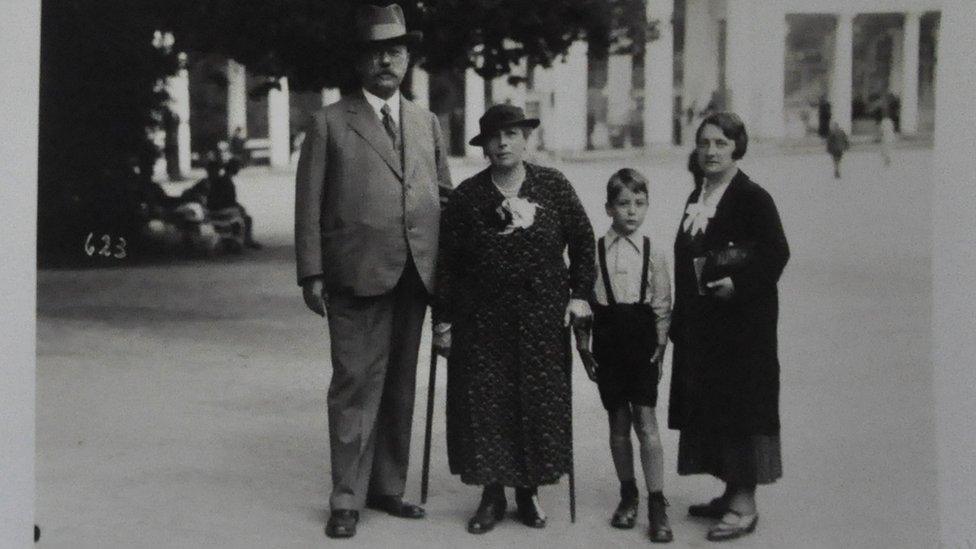
Frank Bright (second from right) was born in Berlin as the only child of Toni (furthest right) and her husband Hermann (not pictured)
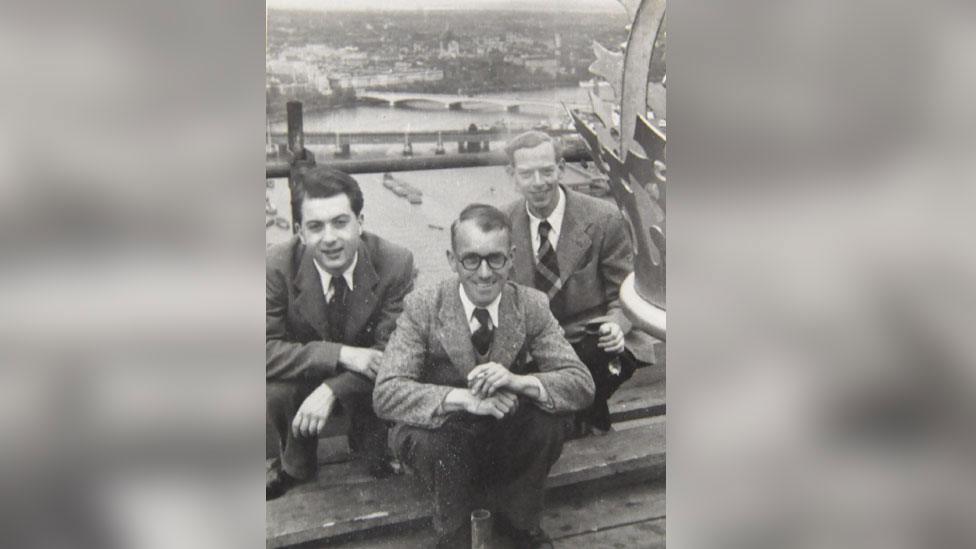
Frank Bright (left) pictured on the roof of the Palace of Westminster when he worked for the Ministry of Works after World War Two
Michael Newman, chief executive of the Association of Jewish Refugees, said the organisation was "deeply saddened".
"We feel privileged to have captured his testimony as part of our Refugee Voices archive, external, a collection of life stories and experiences of Holocaust refugees and survivors," he said..
Mr Bright died on 16 August. He had no grandchildren.
Miriam said her father's instructions regarding his funeral were that there should be no service and his cremation should be unattended.
Although cremation is not part of the Jewish tradition, he wanted to honour his parents that way as they were cremated without funeral services or attendance at Auschwitz.

Follow East of England news on Facebook, external, Instagram, external and Twitter, external. Got a story? Email eastofenglandnews@bbc.co.uk or WhatsApp 0800 169 1830
Related topics
- Published20 August 2023
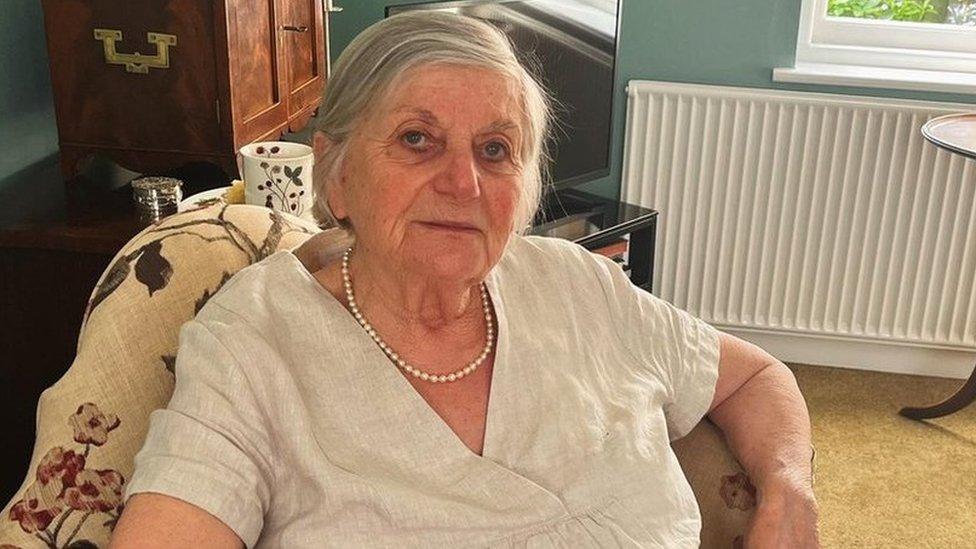
- Published13 November 2022
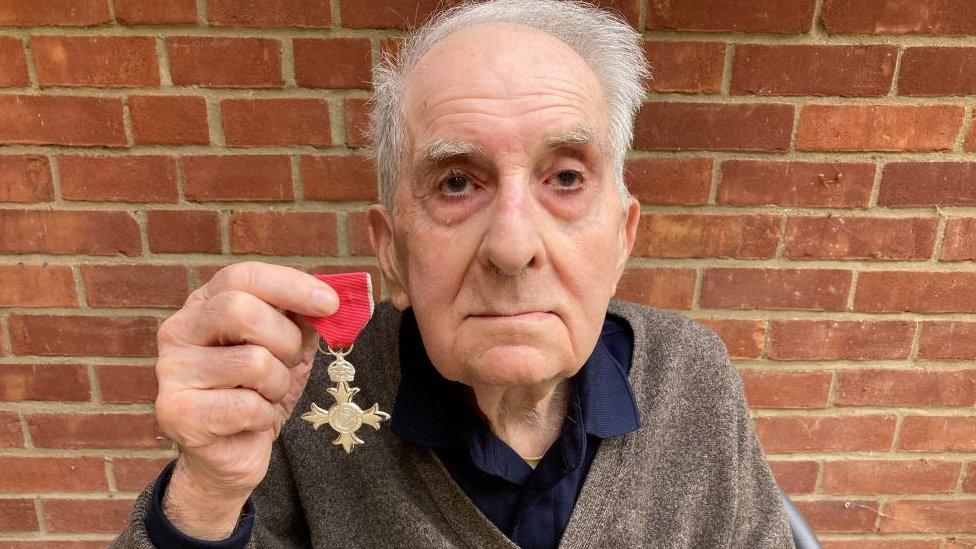
- Published27 January 2017
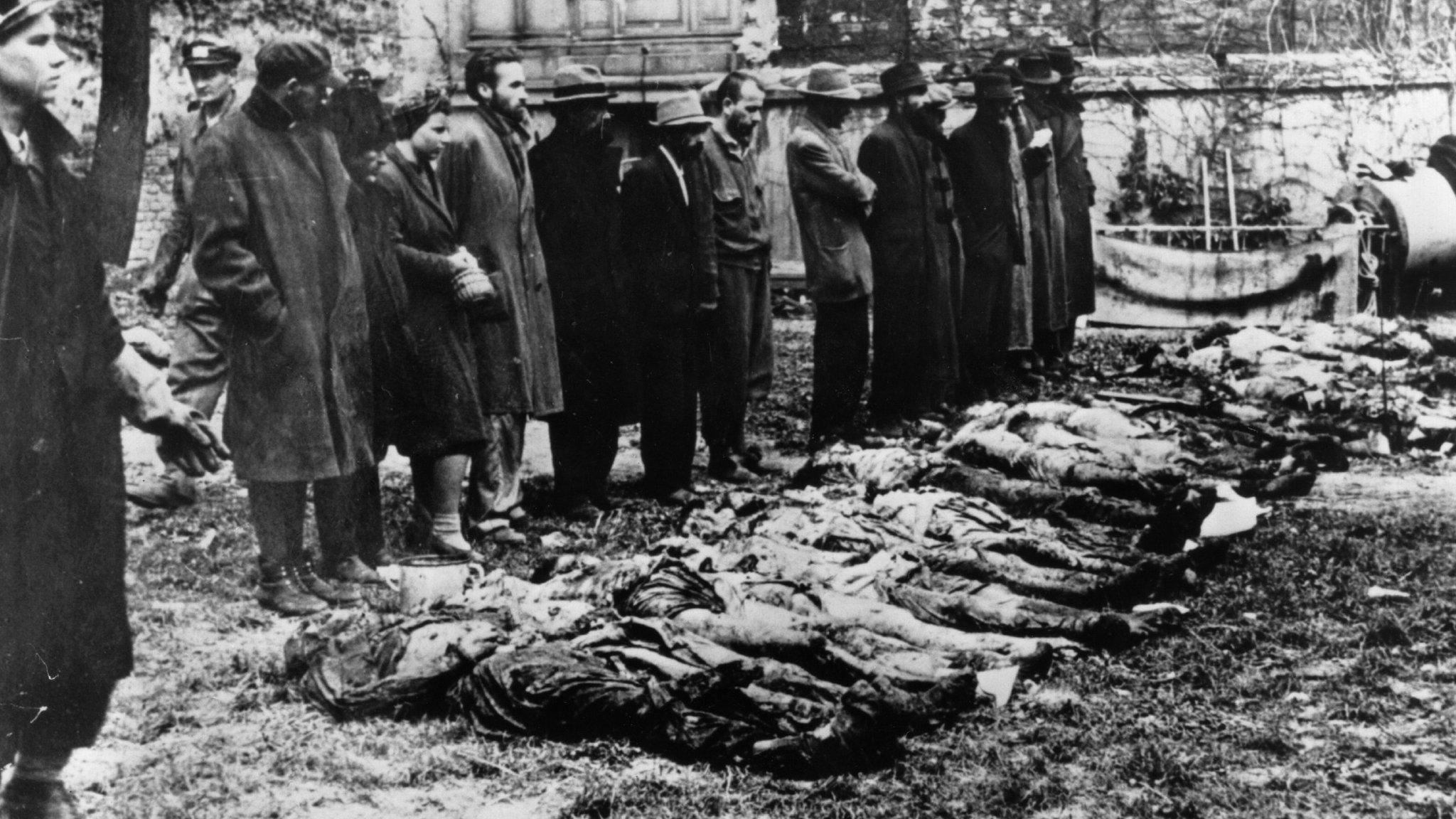
- Published27 January 2017
